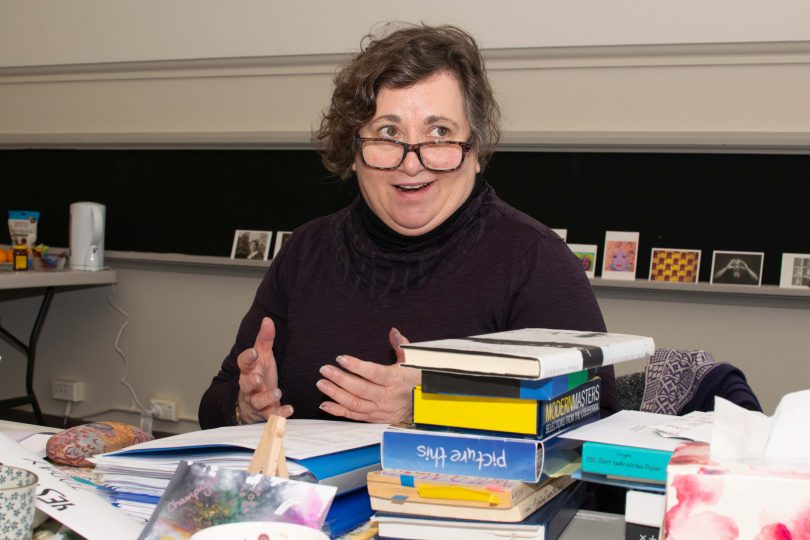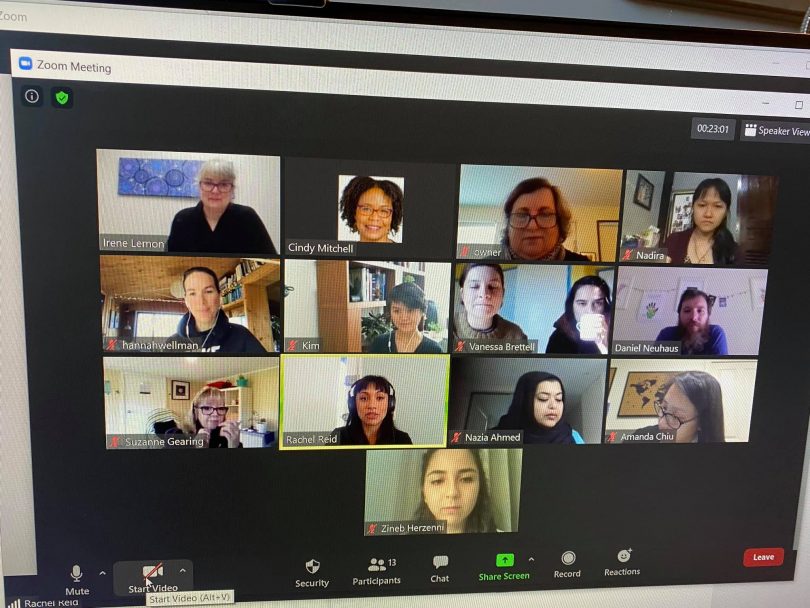
Magnolia Learning’s Claire Manning is one of The Mill House Ventures’ current GRIST participants. Photo: Supplied.
The Mill House Ventures’ flagship program Social Enterprise Accelerator has recently welcomed a new batch of 10 Canberra region business ventures to learn about business models, using trade for impact and changing the face of capitalism. A new online learning space to explore the entrepreneurial skills needed to change the world using social enterprise is a part of the program.
The Mill House Ventures is the social innovation node of the Canberra Innovation Network. Its Social Enterprise Accelerator, also called GRIST, is a five-month capacity building program enabling social ventures to work side-by-side and challenge, collaborate and support each other.
Claire Manning is one of Mill House Ventures’ current GRIST participants. Her business, Magnolia Learning, is an adult learning social enterprise deploying creative practices in partnership with female artists. Claire applied for the Social Enterprise Accelerator opportunity to identify early adopter customers and address specific workplace challenges.
She says getting around to completing her program application took longer than it should.
“I moved to Canberra from the South Coast in 2017,” says Claire. “After hearing my story, a work colleague told me about GRIST and Mill House Ventures. I found out more and then half-completed an application in 2018 but then I missed the 2019 deadline because things were busy.
“During COVID-19 restrictions, I finally had time to Zoom in to a couple of information sessions, learn more about social enterprises and I finished the application I started in 2018. Being accepted on the program at my first try was unexpected and really wonderful news during a challenging year.”
The Mill House Venture’s GRIST Accelerator’s program manager, Irene Lemon, is no stranger to creative industries. As a performing artist, she is well versed in the challenges of explaining the power of arts.
“It’s an incredible privilege to work with social innovators such as Claire,” she says. “She has extensive lived-experience and deep connections with her community of female artists. But social enterprise can be very challenging when you have to move outside of the impact role and into a trading model.”
Claire agrees: “It has been nearly a month since we all started in mid-July and this program is so much more than I expected it to be. I am working my way through the extensive resources and support from the Mill House team and two great mentors. I have been taking two steps backwards then five steps forward as I get my head around developing my business model ideas, refining my market approach and learning more about theory of change.”

An online orientation session with GRIST 2020 participants. Photo: Supplied.
Assisting the challenges of building a business model and an impact model at the same time, Mill House has introduced a new online learning environment.
“In order to pivot and meet our social innovators in COVID-19-safe ways, Mill House Ventures has invested in a virtual delivery strategy,” says Irene.
“We have built an online learning environment in a platform called Skill.Social. We then had to teach this platform to our GRISTers so they could confidently access the resources to accelerate their Social Enterprise.”
Additionally, Mill House has also invested in several social platforms.
“We did this to double down on the real benefits of accelerators,” explains Irene. “The social and cultural connections of ventures going through any type of business accelerator adds so much value to the process of learning.”
The current cohort of GRISTers are loving the digital learning environment.
“My research background is adult learning so this is my area of expertise,” says Claire. “The Mill House team has done a great job putting it all together and coaching us in how to make it work as a group and as individuals. I am quickly grasping the different platforms and Irene has been very patient.”
To find out more, visit The Mill House Ventures.
Original Article published by Mill House Ventures on The RiotACT.


What's Your Opinion?